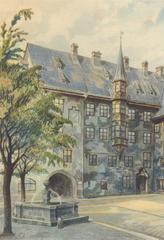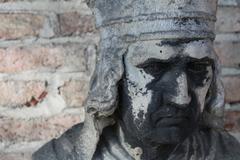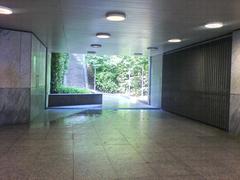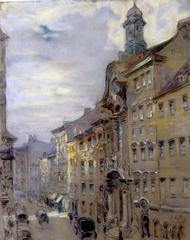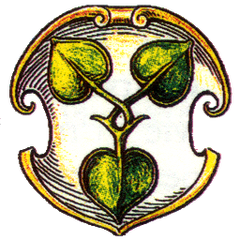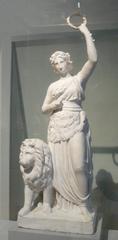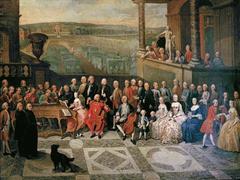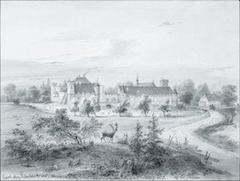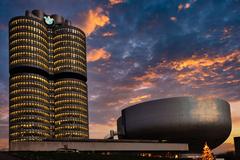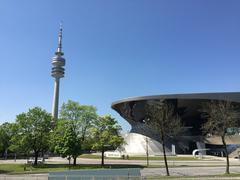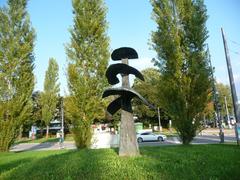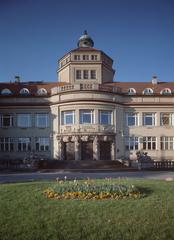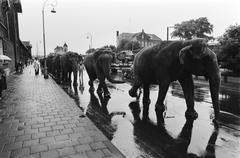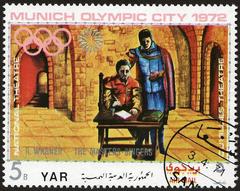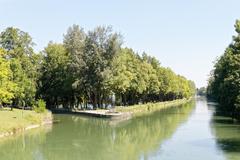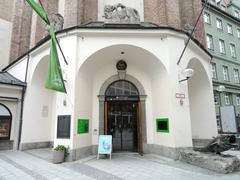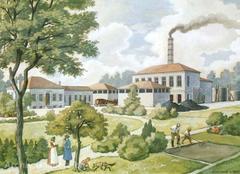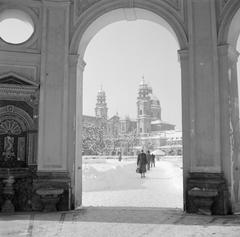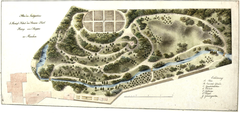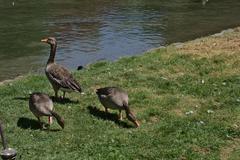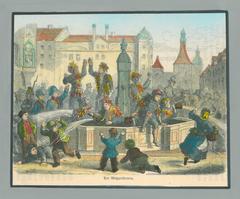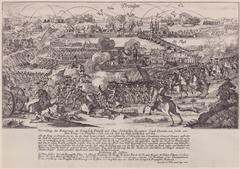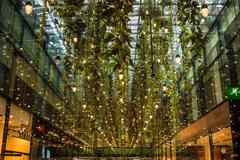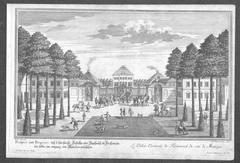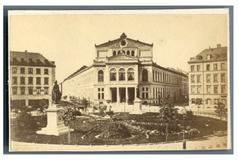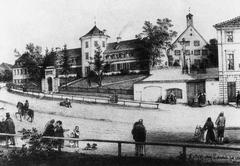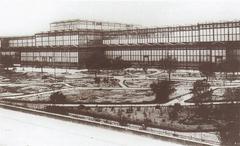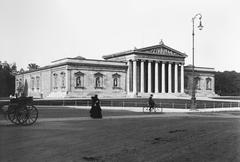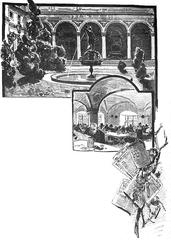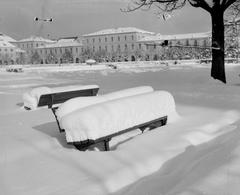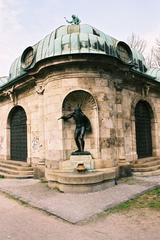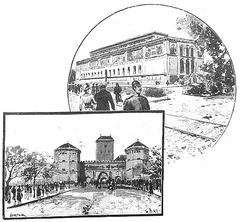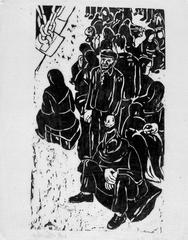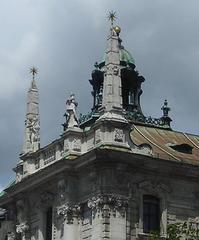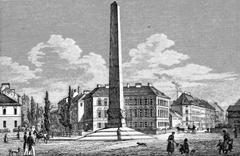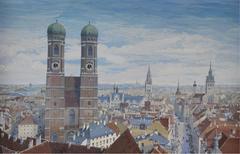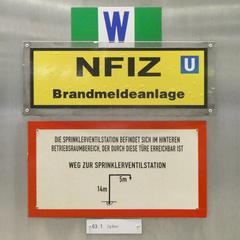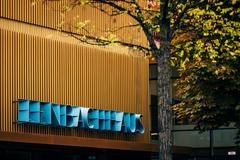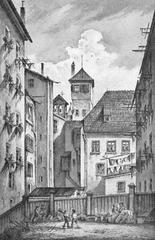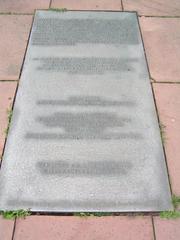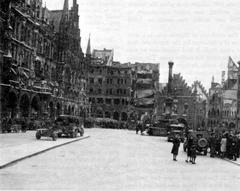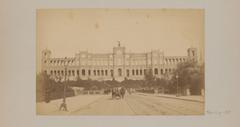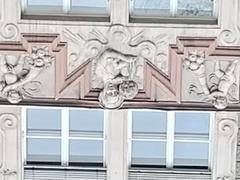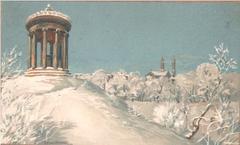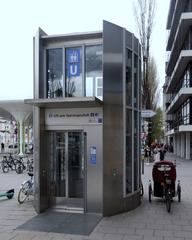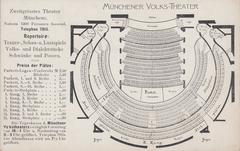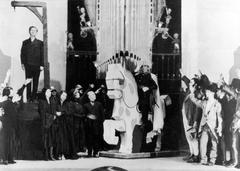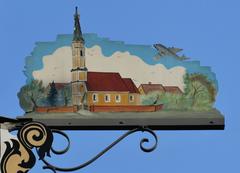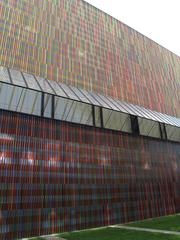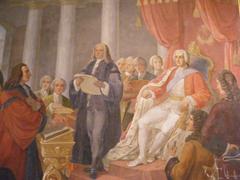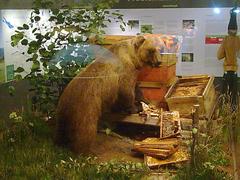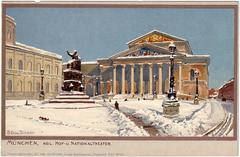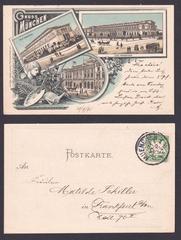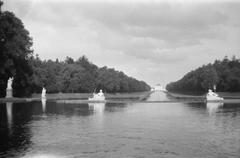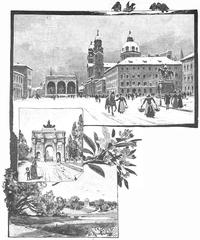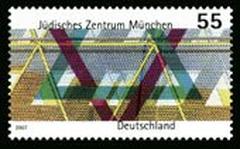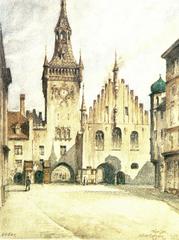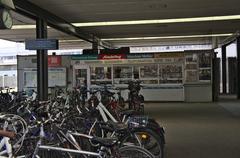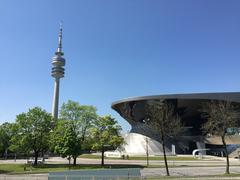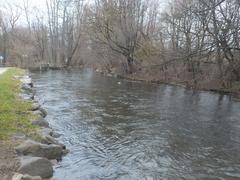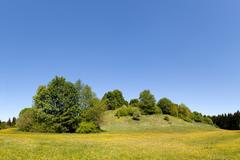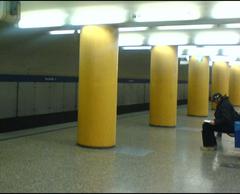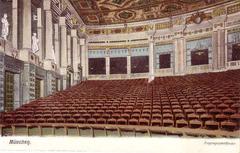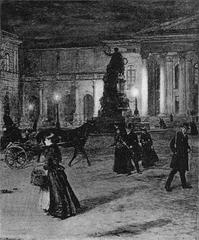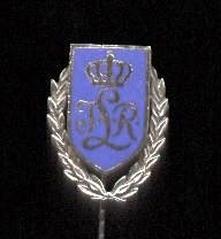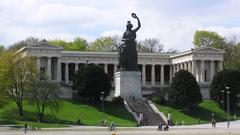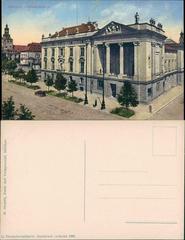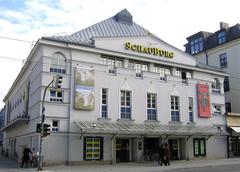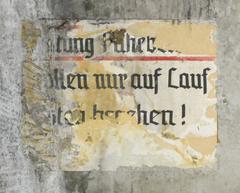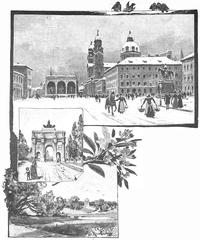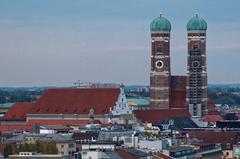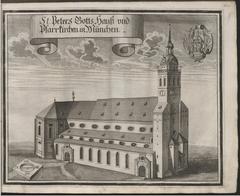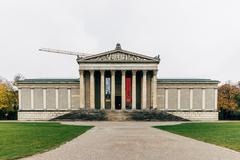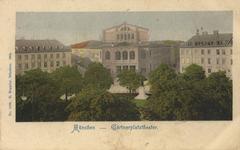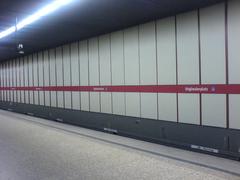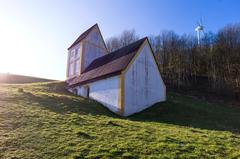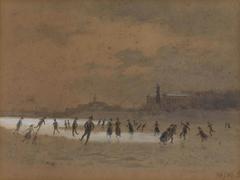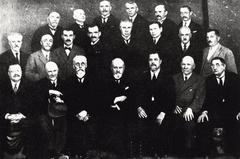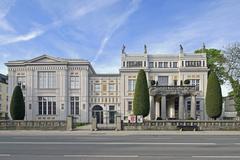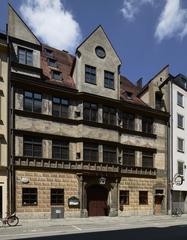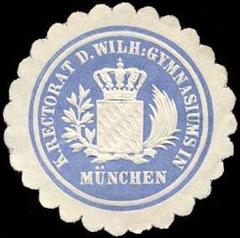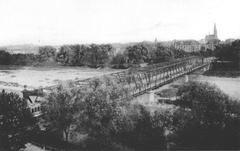Visiting the Japanese Tea House Kanshoan in Munich, Germany: Guide, Tickets, Hours, and Tips
Date: 03/07/2025
Introduction
Nestled within Munich’s lush English Garden, the Kanshoan Japanese Tea House stands as a tranquil sanctuary and a powerful symbol of German-Japanese friendship. Established in 1972 as a gift from Sapporo and the Urasenke Tea School to commemorate the Olympic Games, Kanshoan offers an authentic immersion into Japanese tea ceremony tradition (Chadō), architectural aesthetics, and cultural exchange. Visitors can experience public tea ceremonies, explore the surrounding Japanese garden, and participate in annual cultural events—all within the heart of Bavaria. This comprehensive guide covers Kanshoan’s history, visiting hours, ticketing, accessibility, nearby attractions, and practical tips to help you plan an enriching and memorable visit (placesofgermany.de, englischer-garten-muenchen-infos.de, urasenke-muenchen.de).
Table of Contents
- Introduction
- History and Origins of Kanshoan
- Architectural Features and Garden Setting
- The Tea Ceremony Experience at Kanshoan
- Visitor Information: Hours, Tickets, and Directions
- Accessibility and Facilities
- Annual Events: Japanfest and More
- Nearby Attractions in the English Garden
- Travel Tips and Visitor Etiquette
- Frequently Asked Questions (FAQ)
- Summary and Call to Action
- References
History and Origins of Kanshoan
Kanshoan was built in 1972 as a gesture of friendship between Munich and Sapporo, coinciding with the Olympic Games hosted by both cities that year. Designed by Soshitsu Sen, the Grand Master of the Urasenke Tea School, and architect Mitsuo Nomura, the tea house was constructed in the traditional sukiya-zukuri style on a small island in the southern English Garden. Since its opening, it has served as both a cultural venue and a bridge for educational exchange, maintained by the Urasenke Teahouse Association (placesofgermany.de; englischer-garten-muenchen-infos.de).
Architectural Features and Garden Setting
Kanshoan exemplifies Japanese architectural minimalism and harmony with nature. The structure features wooden beams, tatami mats, sliding shoji screens, and a tokonoma alcove used for seasonal art or calligraphy. Originally topped with a thatched roof (now replaced by wood for preservation), the tea house is surrounded by a serene Japanese garden complete with a koi pond, stepping stones, and a wooden bridge. Its placement in the Schwabinger Bach area of the English Garden ensures a peaceful retreat from the city’s bustle (tropter.com; outdooractive.com).
The Tea Ceremony Experience at Kanshoan
Ritual and Philosophy
Organized by the Urasenke tradition, tea ceremonies at Kanshoan embody the principles of harmony (wa), respect (kei), purity (sei), and tranquility (jaku). The ceremony includes a symbolic cleansing, presentation of seasonal Japanese sweets (wagashi), the careful preparation and serving of matcha, and a closing reflection. Sessions are conducted by experienced practitioners and are accessible to both German- and English-speaking visitors (englischer-garten-muenchen.info).
Participation
- Season: April to October, with ceremonies typically on weekends and special holidays.
- Session Times: Usually at 14:00, 15:00, 16:00, and 17:00; each session lasts about an hour and hosts up to 25 people.
- Tickets: Sold on-site only, first-come, first-served. Adults €10, children under 12 €5 (includes tea and a sweet). No advance reservations.
Visitor Information: Hours, Tickets, and Directions
Location
- Address: Kanshoan Japanese Tea House, English Garden, near Prinzregentenstraße, 80538 Munich, Germany
Getting There
- Public Transit:
- U-Bahn: Odeonsplatz (U3/U4/U5/U6) or Lehel (U4/U5), 10–15 minutes’ walk through the park.
- Tram: Lines 16 and 17 to Nationalmuseum/Haus der Kunst.
- Bus: Stops near Prinzregentenstraße and Haus der Kunst.
Parking
- Limited parking is available at Haus der Kunst and along Prinzregentenstraße.
Accessibility and Facilities
- Park Paths: Wheelchair-accessible and cyclist-friendly main paths.
- Tea House Access: The immediate area features gravel and stepping stones; a wooden bridge leads to the entrance, and staff can assist visitors with mobility challenges.
- Seating: Traditional tatami seating; chairs/stools available upon request.
- Restrooms: Available near Haus der Kunst and the Chinese Tower; some require a small fee.
- Bicycle Parking: Near park entrances.
For accessibility details, contact Urasenke München in advance or consult the Deutsche Bahn accessibility map.
Annual Events: Japanfest and More
Japanfest Munich
Held annually on the third Sunday in July, Japanfest transforms Kanshoan and its surroundings into a vibrant celebration of Japanese culture. The event includes open-air tea ceremonies, martial arts demonstrations, calligraphy, music, dance, a cosplay competition, and food stalls serving Japanese cuisine. The festival is organized by the Consulate General of Japan, the Japan Club Munich, and the German-Japanese Society in Bavaria (Japanfest Munich 2025).
Other Events in the English Garden
- Kocherlball: Bavarian folk dance at the Chinese Tower
- Sommernachtstraum: Summer festival with fireworks and live music (Munich Event Calendar)
Nearby Attractions in the English Garden
- Eisbachwelle: Watch surfers at this urban river wave.
- Chinese Tower: Iconic beer garden and live music venue.
- Monopteros: Hilltop temple with panoramic park views.
- Seehaus: Lakeside restaurant and beer garden.
- Haus der Kunst: Contemporary art museum adjacent to the park (Haus der Kunst).
- Fräulein Grüneis: Popular café near the park entrance.
Beyond the park, explore Marienplatz, Viktualienmarkt, Nymphenburg Palace, and the Botanical Garden (Munich Top Sights).
Travel Tips and Visitor Etiquette
- Arrive Early: Especially during weekends and festivals for ticket availability.
- Attire: Modest, comfortable clothing; socks required inside the tea house.
- Photography: Allowed before/after ceremonies, but not during the ritual.
- Payments: Bring cash; card acceptance may be limited.
- Weather: The tea house is unheated; dress for seasonal conditions.
- Accessibility: Contact ahead for mobility support.
Frequently Asked Questions (FAQ)
Q: When is Kanshoan open?
A: Tea ceremonies run April–October, usually on weekends and select holidays. Check official schedules for up-to-date information.
Q: How do I get tickets?
A: Tickets are sold on-site, first-come, first-served; no reservations.
Q: Is the tea house accessible?
A: Main paths are accessible, but the final approach has some uneven surfaces. Assistance and alternative seating are available.
Q: Are there guided tours?
A: Occasionally, especially during events; see the official website.
Q: Can I participate in the tea ceremony?
A: Yes, during public sessions and especially at Japanfest.
Q: Is there an admission fee for Japanfest?
A: Entry is free; some workshops or food items require a fee.
Summary and Call to Action
The Kanshoan Japanese Tea House in Munich’s English Garden is an enduring symbol of cultural collaboration, serenity, and tradition. From its Olympic origins to its role as a hub for tea ceremonies, educational events, and annual celebrations like Japanfest, Kanshoan blends Japanese heritage with Bavarian hospitality. Plan your visit during the open season, arrive early for tickets, and explore the surrounding park and attractions for a truly rewarding experience. For the most current information, schedules, and cultural insights, consult the official websites and consider downloading cultural apps such as Audiala. Follow relevant social media channels for updates and inspiration (englischer-garten-muenchen-infos.de, placesofgermany.de, djg-muenchen.de).
References
- Visiting the Kanshoan Japanese Tea House in Munich: Hours, Tickets, and Cultural Insights, 2025, placesofgermany.de (https://placesofgermany.de/en/places/munich-japanese-teahouse/)
- Visiting the Japanese Tea House (Kanshoan) in Munich’s English Garden: Hours, Tickets & Accessibility, 2025, Stadtrundfahrten München (https://www.stadtrundfahrten-muenchen.de/en/the-english-garden-in-munich/n240)
- Japanese Tea House Munich: Visiting Hours, Tickets, and Tea Ceremony Experience, 2025, muenchen.de (https://www.muenchen.de/sehenswuerdigkeiten/orte/120347.html)
- Visiting the Japanese Tea House Munich: Annual Events, Visiting Hours & Nearby Attractions, 2025, englischer-garten-muenchen-infos.de (https://www.englischer-garten-muenchen-infos.de/en/sights/japanese-teahouse-kanshoan/)
- Urasenke München Official Website, 2025 (https://www.urasenke-muenchen.de/)
- Deutsch-Japanische Gesellschaft München, 2025 (https://www.djg-muenchen.de/teehaus/)


